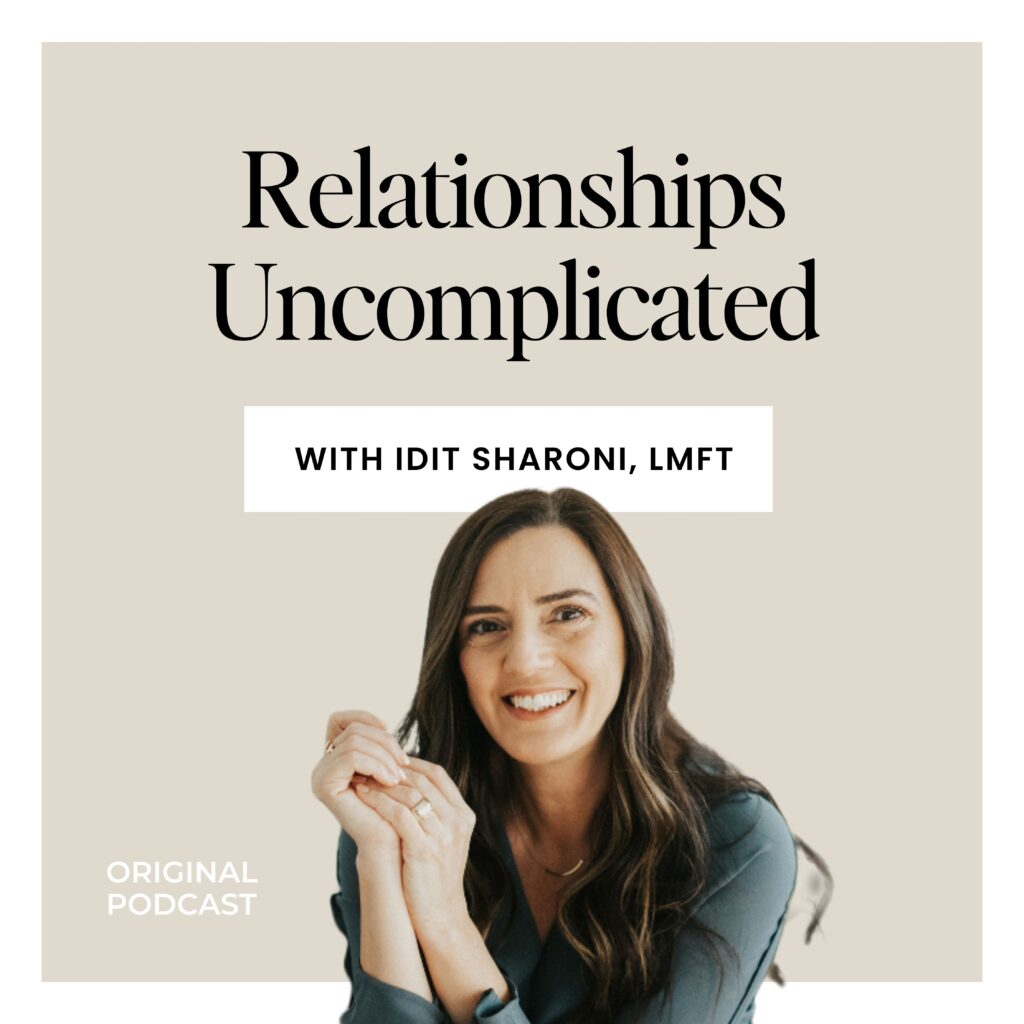Are you wading through the aftermath of an affair? If so, you are no doubt struggling with the waves of anxiety and uncertainty about the future. How can you possibly process all that is happening to your relationship? The undeniable tension between wanting to know details about the affair and needing to heal after cheating may feel unbearable. We call this the “data collection phase.”

Too often, we see couples stuck in this phase, wanting to know exactly what happened and not knowing what to do with such distressing information. Of course, knowing details is important. However, this phase can easily shift from a productive step toward recovery to becoming a distracting obstacle that delays healing. For some couples, data collection is an indefinite journey, draining precious time and energy from true affair recovery.
Why is The Data Collection Phase So Complex for Couples Healing After Cheating?
The data collection phase is the hurt partner’s effort to gather information about the infidelity. In doing so, they attempt to restore their own lost sense of coherence. At this stage, they’re essentially picking up scattered pieces of their relationship and trying to connect the dots. Ultimately, they are hoping for relief. Instead, a few things usually happen:
- They find themselves repeatedly asking about specific details of the betrayal. Or they spiral into unhelpful rabbit holes as one question leads to another.
- Frustration, confusion, and feelings of being gaslit result if their unfaithful partners are unable or unwilling to supply answers.
- What starts as a search for clarity can quickly turn into a crisis for both partners. The couple feels increasingly more disoriented and distressed.
Is there any way to process information during affair recovery in ways that promote healing?
Great question. We thought Dr. Yael Haklai-Neagu, the clinical director at Relationship Experts, would be an ideal person to help us answer it. As a seasoned Licensed Marriage and Family Therapist and one of the expert coaches in our It’s Okay To Stay infidelity recovery program, she understands the complexities of healing after cheating.
Let’s examine the answers to four key questions together:
- Why is the need for affair-related details so powerful and universal?
- What does being stuck in the data collection phase mean?
- Is staying in the data collection phase holding back your healing?
- Are there actionable steps for gently moving forward?
Are you ready to shift the way you’ve been approaching affair recovery? Let’s gently uncover what keeps you stuck and chart a path toward solid, meaningful healing.
Defining the Data Collection Phase
According to Dr. Yael, this phase occurs in the early period of affair recovery. The unfaithful partner takes responsibility for offering full disclosure and the hurt partner learns all of the affair particulars (what, when, where, and with whom). These revelations help the hurt partner start making sense of the affair and its impact on their relationship with their unfaithful partner.
This attempt to regain a sense of clarity and coherence is characterized in several important ways:
- Data collection begins immediately after the infidelity is revealed. This can sometimes extend for weeks, months, or even years.
- Most hurt partners experience a profound loss of coherence. This means the narrative about their relationship has been shattered.
- The hurt partner asks a wide range of questions about the betrayal. Questions commonly include:
- Essential facts (When did it start? Is it over? Did you have feelings?)
- Meaning and motive questions (Why did you do it?)
- Granular or graphic questions (What restaurant did you go to? What sex positions did you use?)
Please know that this kind of questioning is completely normal in the immediate aftermath. In fact, collecting data is a way of making sense of what happened, understanding the scope of the betrayal, and ultimately regaining some control.
However, if this pattern of questioning continues too long, it can interfere with healing after cheating. Even if the unfaithful partner is doing their part in the healing process, a prolonged search for clarity can become a cycle of emotional re-injury.
So, Where Do Data Collecting Couples Get Stuck?
Dr. Yael shared that just because the data collection phase is difficult and fraught with issues, it doesn’t absolve the unfaithful partner from a responsibility to be honest and transparent. Avoiding the hurt partner’s questions is not productive. Still, hurt partners in deep pain can get pulled into the quicksand of collecting information about the affair.
To illustrate what often happens during data collection, it might be helpful to share a real-life example. Dr. Yael offered a story of a couple, let’s call them Kelly and John, who found themselves stuck in this phase:
John had a two-year affair with a coworker. As you can imagine, a lot happened over those two years. They met in restaurants, went on out-of-town trips, made countless phone calls, exchanged gifts and expenses, and sent hundreds of text messages. You name it.
Kelly found out about the affair completely by accident, A text popped up on John’s phone while she happened to be holding it. She had no idea he’d been involved with someone else, and, as you can imagine, the discovery was devastating and completely disorienting. Kelly’s world shattered in an instant, and she became desperate to regain a sense of coherence and control. She felt the only way to do that was to understand everything—every detail, every timeline. The search became emotionally consuming and even started to stand in the way of healing.

To start:
Kelly was drowning in data—digging through phone records, credit card statements, rereading long message threads. Now, in the early stages, that made sense. She was trying to protect herself from further hurt, trying to piece together what had happened. But as time went on, her need for information became all-consuming. It was less a path to understanding and healing and more a forensic quest.
The deeper Kelly dug, the more she uncovered: restaurant names, hotel bookings, and conversations between her husband and the affair partner. In therapy sessions, she expressed that if she could just find that “one last piece”, maybe she’d finally believe John. Or maybe, she might not feel so foolish for having missed the signs.
Eventually, it became clear that staying focused on the facts of the affair wasn’t helping. In fact, all of the data kept her stuck, mentally and emotionally reliving the betrayal.
What is the betrayed partner really struggling with when healing after cheating?
If you are the hurt partner, you may relate to Kelly. She was having a hard time making the shift to the next phase of healing. She desperately needed to move on to the phase where she asked deeper questions like:
- What did the affair mean?
- What were the dynamics in our relationship at the time?
- What led my partner to make those choices?
- What did all of it mean as a couple moving forward?
That’s where the real healing starts, says Dr. Yael. It’s hard to take that step when you’re caught in the quicksand of the details. It shows how easy it is to get stuck there. That’s why it’s so important to recognize what’s happening with compassion for yourself and your partner.
Are Your Questions Healthy? 4 Common Behaviors That Can Sabotage Healing After Cheating
To know whether your questions actually do help rebuild a sense of coherence, it’s important to consider behaviors that signal stuckness instead of progress.
1. Seeking minute details that don’t change the overall narrative.
Trying to understand what happened in the aftermath of infidelity is a lot like putting together a 1,000-piece puzzle. The image on the box represents your sense of clarity and coherence. But then, in a moment, that entire puzzle is knocked off the table. Pieces scatter everywhere. The picture is gone, and with it, the sense of coherence and stability.
How does the hurt partner react? They immediately begin trying to pick up the pieces, desperately searching for as many as they can. This is the beginning of the data collection phase. It’s a natural response to trauma. They start asking loads of factual questions. These are the puzzle edge pieces, the framework for making sense of what they’re confronted with.
Then come the more detailed, graphic, or emotionally triggering questions (What sex positions did you use? Did you climax). These are like the subtle shades of color in the relationship picture. These small details feel crucial when the hurt partner is trying to complete the image. And so, the hurt partner keeps building and rebuilding the hurtful puzzle, over and over.
Every time a new detail is uncovered—or withheld—they question whether the entire puzzle is wrong. So, they pick it apart and start from scratch, hoping the next time it will feel whole. They believe they need all 1,000 pieces before they can rest. Instead of stepping back and acknowledging the progress, they stay in search mode. Healing remains on hold until the puzzle feels complete. This can go on for months… sometimes even years.
In the meantime:
The hurt partner is shouldering the heavy responsibility of reconstructing the affair. When they’re finally able to sit with the image they’ve reconstructed, despite a few missing pieces, they’re better able to begin healing. Of course, this depends on the unfaithful partner showing up with honesty, consistency, and empathy. Without that, it’s like trying to finish a puzzle with someone hiding the pieces.

Can hurt partners eventually ever say, “I see the picture, I understand enough to begin healing after cheating now?”
Yes! That’s the affair recovery turning point. This is exactly the kind of work we do in our It’s Okay To Stay infidelity recovery program. Our expert coaches are trained to recognize when partners are stuck in this phase. We guide them—step by step—toward clarity, healing, and forward movement. Healing isn’t about finding every last puzzle piece—it’s about looking at the picture you’ve rebuilt, and finally feeling grounded enough to move ahead.
Now let’s consider other data collection behaviors that can impede infidelity recovery as well:
2. Asking the same questions over and over…even if the answers haven’t changed.
It’s not that the hurt partner is not listening; it’s more about trying to make sense of something that still feels confusing or painful.
3. Struggling to accept that some questions might never get a clear answer.
Trying to recall details of encounters that happened years ago may not always be possible for the unfaithful partner.
4. Double-checking the story repeatedly to ensure they didn’t miss something.
Hurt partners may go back and read messages, bank statements, phone records, social media comments, even if they’ve made some progress.
To be clear, these are normal reactions. The brain is trying to get a sense of control or find closure. Yet, it is also true that healing suffers when data collection is engaged too often or too long.
Data Collection Comes Down To Two Main Things: Timing and The Level of Detail
One of the key ways we can tell that a hurt partner is stuck? They slide from frantic data collector to “day job” interrogator/detective. Data collection goes on for months and even years after the revelation, regardless of healing steps like trust building, remorse expressing, etc. If you identify yourself in unhelpful patterns, consider 1) the amount of time you devote to data collection and 2)the extensive nature of the details you uncover. Is this phase helpful or hurtful?
How Being Stuck In the Data Collection Phase Hinders Healing After Cheating
- Healing is not just about knowing what happened. It’s about understanding why it happened.
If you’re only focused on the facts, you’re missing the emotional aspects. That’s really where your healing begins. Your sense of coherence is complicated by the feeling that you’re drowning in details.
- Data collection keeps all the attention on the unfaithful partner’s actions.
If you’re the hurt partner, this means there’s not much space to process your own emotions or figure out what feels safe again. You’re too exhausted by investigation and interrogation.
- Persistent rumination.
When you keep replaying the same details over and over, it usually doesn’t bring clarity. Instead, you cyclically fuel more anxiety and anger.
Post-affair couples who want to stay together must release the data collection phase to focus on rebuilding trust, reconnecting emotionally, and making progress toward a new version of the relationship.
Are These Two Issues Keeping Your Relationship in the Data Collection Phase?
1. A Strong Need for Certainty
You aren’t alone if you believe that uncovering every single detail will finally bring closure. In the earlier illustration, Kelly kept thinking that one more answer would finally make John’s affair make sense. The truth? This kind of closure rarely comes from facts alone.
2. Fact-Finding Becomes Avoidance
Sitting with what the betrayal means may feel incredibly vulnerable and scary. Data collection mode can become an avoidance tactic, shielding you from the deeper emotional work.
Dr. Yeal shared that for “Kelly and John,” the shift towards healing began when Kelly realized that gathering more and more pieces of information wouldn’t bring the clarity she sought. What truly helped? Assembling the pieces of the affair and reflecting on the bigger picture. The aim? To gain deeper insight into the infidelity and what it means.

Is There a Way to Get Out of Fact-Finding Mode and Fully Heal? 5 Steps to Take Now
Absolutely! Dr. Yael affirms that there is a definite way forward. Relationship Experts offers these actionable steps toward a new relationship together.
Step 1: Get Clear on Why You’re Asking Those Questions
Before each affair-related question, pause and ask yourself: “Am I asking this to gain clarity that will help me heal—or am I trying to soothe anxiety I can’t seem to settle?”
If it’s the latter, that’s a signal to slow down. It may be that healing isn’t another answer, but emotional support for what you already know.
Step 2: Look for Repetition
Notice patterns. Ask yourself: “Am I asking the same questions over and over or circling back to information I already know?”
This might be your mind trying to find safety, but it can also signal that you’re stuck in a loop that no longer serves you. Healing often begins when you start tolerating the discomfort of not knowing everything.
Step 3: Set a Gentle Boundary with Yourself
Accept that you don’t have to gather all the pieces. Ever. Ask yourself: “What would it be like to pause here, sit with what I do know, and see how that feels?”
Sometimes, healing comes when we give ourselves permission to stop searching and start feeling.
Step 4: Communicate With Intention
- If you’re the hurt partner, let your partner know when you’re feeling overwhelmed or when your questions are coming from a place of anxiety.
- If you’re the unfaithful partner, check in. Ask yourself, “Am I answering from a place of defensiveness or avoidance, or from a desire to help my partner feel safer and seen?”
Step 5: Seek Support from a Knowledgeable Affair Recovery Professional
Partner with a therapist or coach experienced in healing after cheating. Relationship experts on our team can help you identify how and why you feel stuck. Understanding and a recovery roadmap encourage healing and hope. Feeling stuck does not mean you or your partner are failures or too far gone. All you need is some compassionate guidance.

THE BOTTOM LINE? COPING WITH AFFAIR DETAILS TO FULLY RECOVER IS POSSIBLE
Wanting answers is a completely human response to betrayal. Please know that you’re not broken, and you’re not alone. Thank you to Dr. Yael Haklai-Neagu for reminding us that healing is found in the process of making meaning, rebuilding safety, and learning how to move forward together.
Reach out to our professional affair recovery team at Relationship Experts. We are eager to support you. Let us guide you through the details, issues, and goals that help rebuild your bond. We’ll guide your growth and healing compassionately and professionally. Our practice affords you proven programs, tools, and care. Please initiate our online help whenever you like.
Our infidelity recovery coaching program is the healing pathway you’ve been hoping for.
These easy steps will connect you as soon as possible:
- Schedule a complimentary 45-minute consult.
- Talk with a program specialist. Talk through our Recovery Program together.
- Begin recovering from an affair with our team!
MORE VALUABLE SUPPORT FROM RELATIONSHIP EXPERTS
At Relationship Experts, we offer services to help you recover and thrive. Our private practice operates in Miami, Florida. Our assistance is available online too. Connect with us digitally in the United States, Canada, or the United Kingdom at your convenience. Please learn more about us on our blog page as well.
Comments +